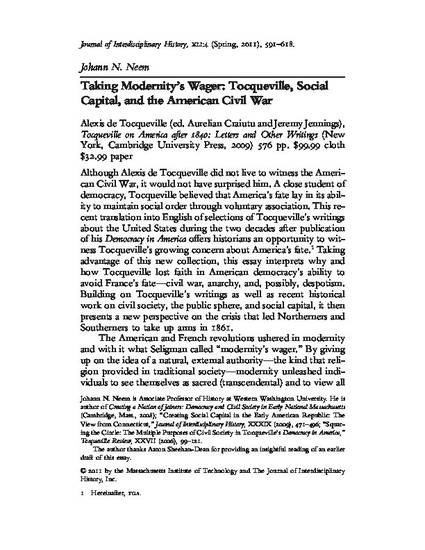
Article
Taking Modernity's Wager: Tocqueville, Social Capital, and the American Civil War
Journal of Interdisciplinary History
Document Type
Article
Publication Date
4-1-2011
Disciplines
Abstract
Alexis de Tocqueville watched with horror as American society and politics changed in the two decades following the publication of Democracy in America. During the 1840s and 1850s, the factors that Tocqueville had earlier identified as sustaining the republic—its land and location, its laws, and its mores—had begun to undermine it. Recent work on civil society, the public sphere, and social capital is congruent with a Tocquevillian analysis of the causes of the Civil War. The associational networks that had once functioned as bridging social capital fractured under the stress of slavery, becoming sources of divisive regional, bonding social capital.
Subjects - Topical (LCSH)
Democracy--United States; Civil society--United States
Subjects - Names (LCNAF)
Tocqueville, Alexis de, 1805-1859
Geographic Coverage
United States--Politics and government; United States--Social conditions
Genre/Form
articles
Type
Text
Language
English
Format
application/pdf
Citation Information
Johann N. Neem. "Taking Modernity's Wager: Tocqueville, Social Capital, and the American Civil War" Journal of Interdisciplinary History Vol. 41 Iss. 4 (2011) p. 591 - 618 Available at: http://works.bepress.com/johann_neem/9/
